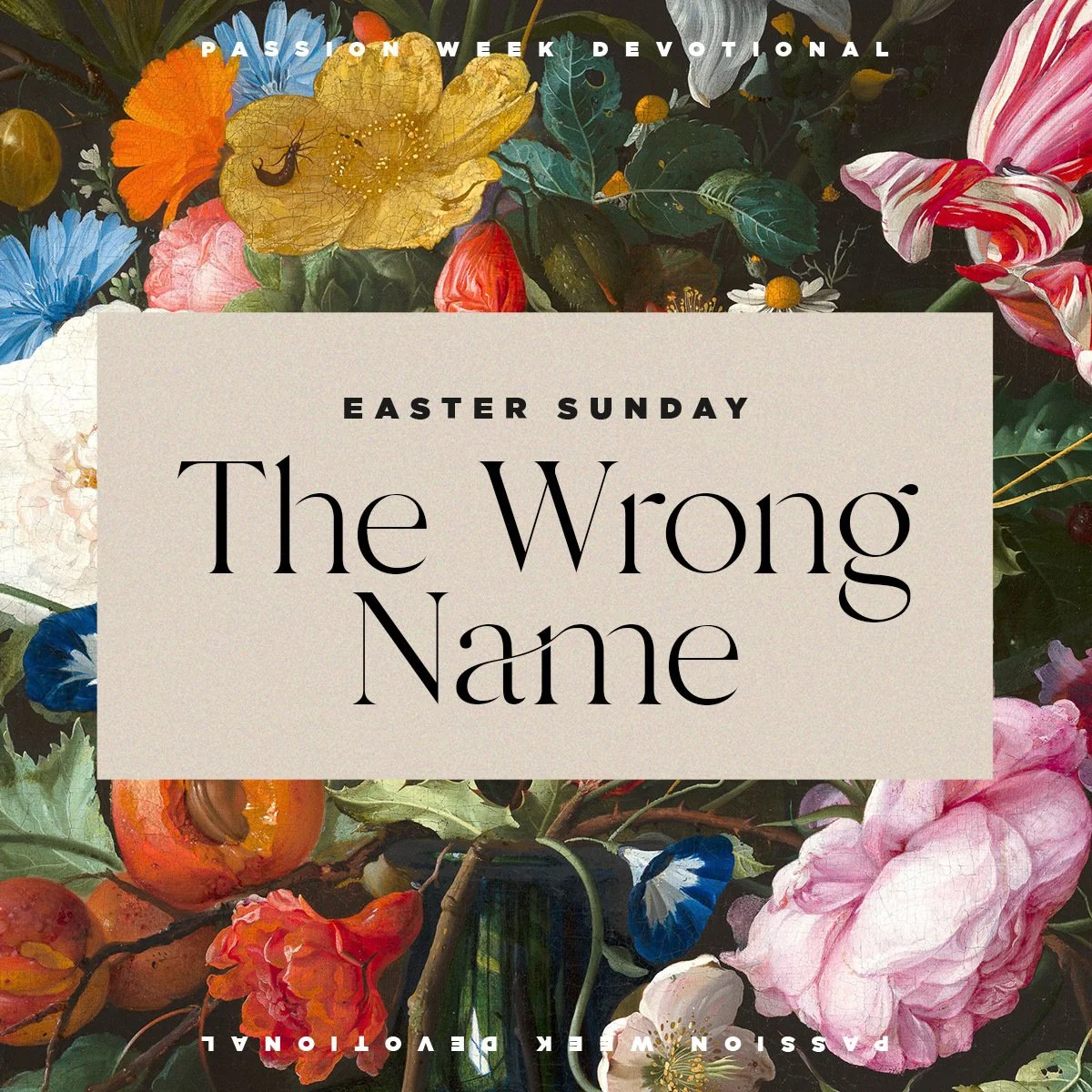Easter Sunday: The Wrong Name
Passion Week contains so many odd elements that defy our understanding of kingdom, power, and authority. It seems that in general God chooses the wrong way to inaugurate His kingdom and the wrong way to crown His King. A procession of singing children rather than a legion of armed soldiers. Resisting popularity and embracing rejection. Fisherman rather than scholars. Washing feet rather than reclining in ease. A thorn studded crown rather than dazzling jewels. A borrowed grave rather than an exalted throne. All the days preceding Easter seem to contain mistakes, missteps in implementing a royal agenda.
We shouldn’t be surprised, then, when the climatic moment of Easter contains another mistake. The first time the resurrected Jesus reveals Himself to someone, she calls Him by the wrong name.
Peter and John leave Mary Magdalene alone and crying by the garden tomb. They saw the empty tomb and “went away again to their own homes” (John 20:10). Mary can’t leave with her questions unanswered, though. She must find something, anything to assuage the sorrow in her heart. Jesus tenderly and compassionately draws near to her, asking why she is crying. However, the tears must have obscured her vision because she doesn’t recognize Him: “She, supposing Him to be the gardener, said to Him, ‘Sir, if You have carried Him away, tell me where You have laid Him, and I will take Him away’” (John 20:15). Rather than calling Him Lord, Rabbi, or Master, Mary blandly calls Him, “Sir,” assuming Him to be the gardener. This doesn’t seem to be the appropriate welcome for a King who has just returned for Sheol itself.
Perhaps, though, just like all the other odd details of Passion Week, this one is not just happenstance. Perhaps, it is another insight into God’s kingdom rather than just a mistake by Mary. If so, what would the insight be?
If we remember Jesus’ parables of the kingdom earlier in the Gospels, we may notice the reoccurring agricultural theme. There is seed, soil, wheat, tares, herbs, and more. And the Gospels are not the first time we see agriculture used to describe God’s work. The Bible begins with God planting a garden. Thus, perhaps, “Gardener,” is not as inappropriate of a greeting as we originally expected. Perhaps, it’s actually the perfect way to salute God’s King.
The resurrected, glorified, vindicated Jesus has every right to instantaneously vanquish the opposition to His kingdom and publicly establish His rule. Instead, He choses to patiently labor like a gardener with the soil of men’s hearts. He sends His representatives to sow and to water. He leaves fallow ground for a season, and then He breaks up the soil. He weeds and enriches. He waits, and He watches. You would think that after the resurrection of Jesus the kingdom analogy would transfer from agriculture to something with quicker, more certain results. However, Mary assumes He is the gardener, and that affirms all the previous parables. The kingdom is a patient, precious process that requires a lot of care.
This Gardener-King reminds us that in the resurrection everything has changed, but we may not see all the fruit of the change overnight. We must treasure the work in our hearts and labor in the lives of other people if we’re going to see its full impact. Though that may be aggravating to our impatient hearts that want the kingdom right now, it’s a sign of the kind of King we serve. He is patient. He is kind. He’s willing to work with each of us alone in the garden until our tears turn to joy.
//
Devotional by Pastor Micah Wood

